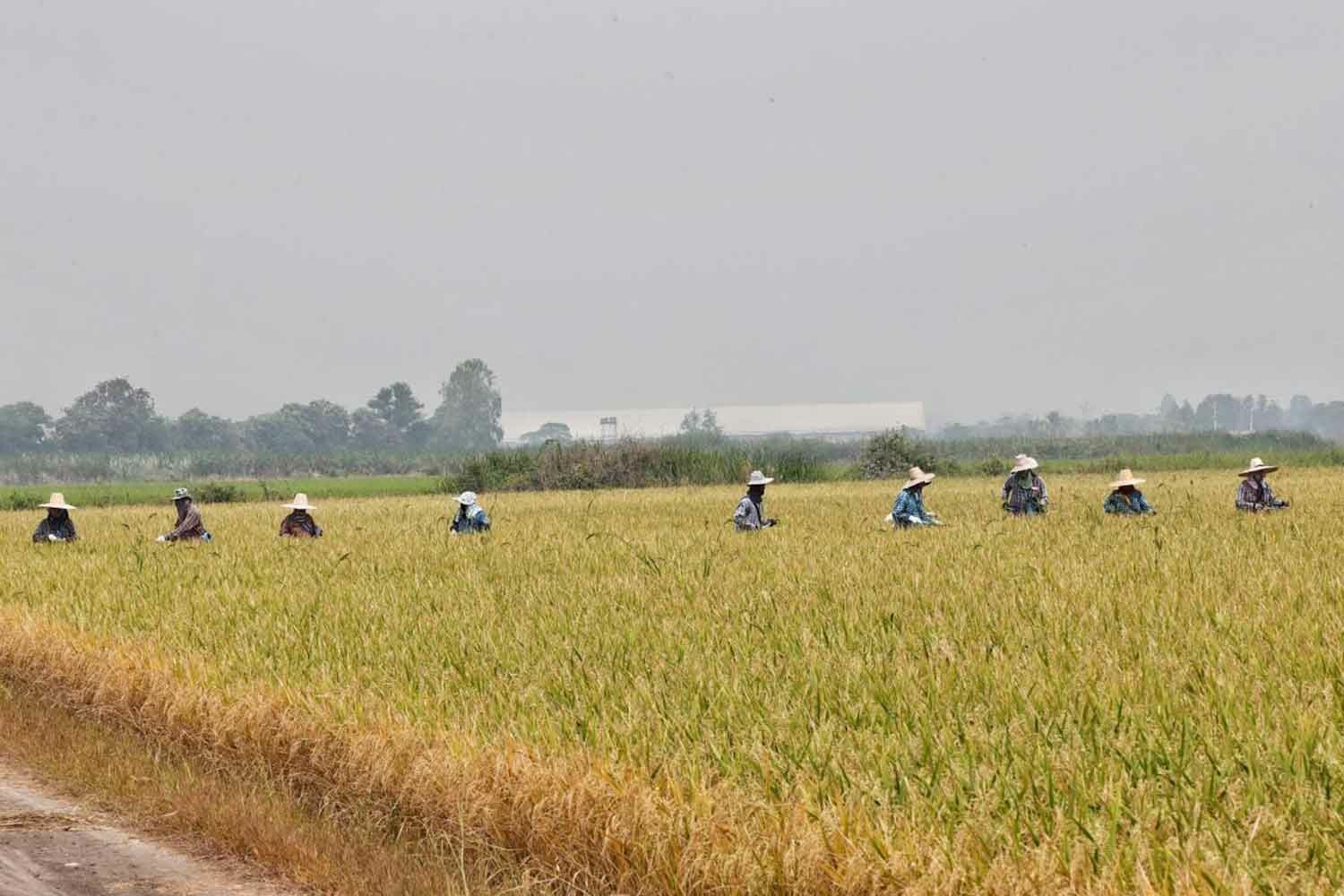Thailand to export 8.2 million tonnes of rice amid strong demand

Thailand anticipates exporting 8.2 million tonnes of rice this year, an increase from the previously forecasted 7.5 million tonnes, driven by strong demand from major markets and a depreciating baht, according to the Commerce Ministry.
Ronnarong Phoolpipat, Director-General of the Foreign Trade Department, reported that rice exports in the first half of the year reached 5.08 million tonnes, valued at 117.8 billion baht (US$ 3.3 billion), reflecting a 25.1% rise in volume and a 55.5% increase in value year-on-year.
“Rice importers are seeking to import rice for both consumption and stockpiling for food security.”
India’s rice export restrictions and the baht’s depreciation to 36 to 37 per US$ are contributing to the competitive pricing of Thai rice.
On July 25, the department convened with the Thai Rice Exporters Association to discuss the rice export outlook for the second half of the year. Continued demand from key markets, including the Philippines and Indonesia, aiming to mitigate inflation and drought impacts, emerged as a significant positive factor.
The Philippines announced a reduction in rice import taxes from 35% to 15%, effective from early August and lasting until 2028, enhancing the market for Thai exports.
Rice export
Ronnarong noted that the Philippines and Indonesia are expected to increase their rice imports to up to 4.7 million tonnes and 3.6 to 4.3 million tonnes, respectively, this year, presenting substantial opportunities for rice-exporting countries like Thailand.
Additionally, in-season rice production set to enter the market in the fourth quarter is projected to rise compared to the same period last year, bolstered by increased rainfall as the El Niño weather phenomenon diminishes. Consequently, Thai rice prices are declining, enhancing their competitiveness.
Ronnarong forecasted that rice exports could reach 8.2 million tonnes this year, with a value of US$4.5 billion or approximately 162 billion baht, exceeding the earlier projection of 7.5 million tonnes.
However, several risk factors may impact Thai rice exports in the second half of the year. These include the potential revision of India’s rice export restrictions, increased rice production in Vietnam, Pakistan, Myanmar, and Cambodia, which could heighten global supply and price competition, and ongoing geopolitical tensions and volatile shipping freight rates.
Despite these challenges, the Thai rice export situation remains favourable. Exporters are committed to delivering substantial quantities of rice, particularly white rice, to primary markets within ASEAN, including Indonesia, the Philippines, and Malaysia, as well as Africa and the Middle East.
Ronnarong affirmed the department’s readiness to collaborate closely with relevant government and private sector entities, including the Thai Rice Exporters Association, to promote and enhance rice exports.
Key activities for the remaining months include the Thailand Rice Convention (TRC) 2024, an international conference where global rice trade experts will exchange market information and engage in business negotiations.
Mobile TRC roadshows are planned to provide on-site market trend information to rice farmers, encouraging them to align their production with market demands, reported Bangkok Post.
The department also aims to bolster relationships and expand the rice market in key regions such as South Africa, Hong Kong, Japan, Singapore, Malaysia, and the Philippines, along with participating in several trade shows to promote Thai rice globally.
Latest Thailand News
Follow The Thaiger on Google News:


























